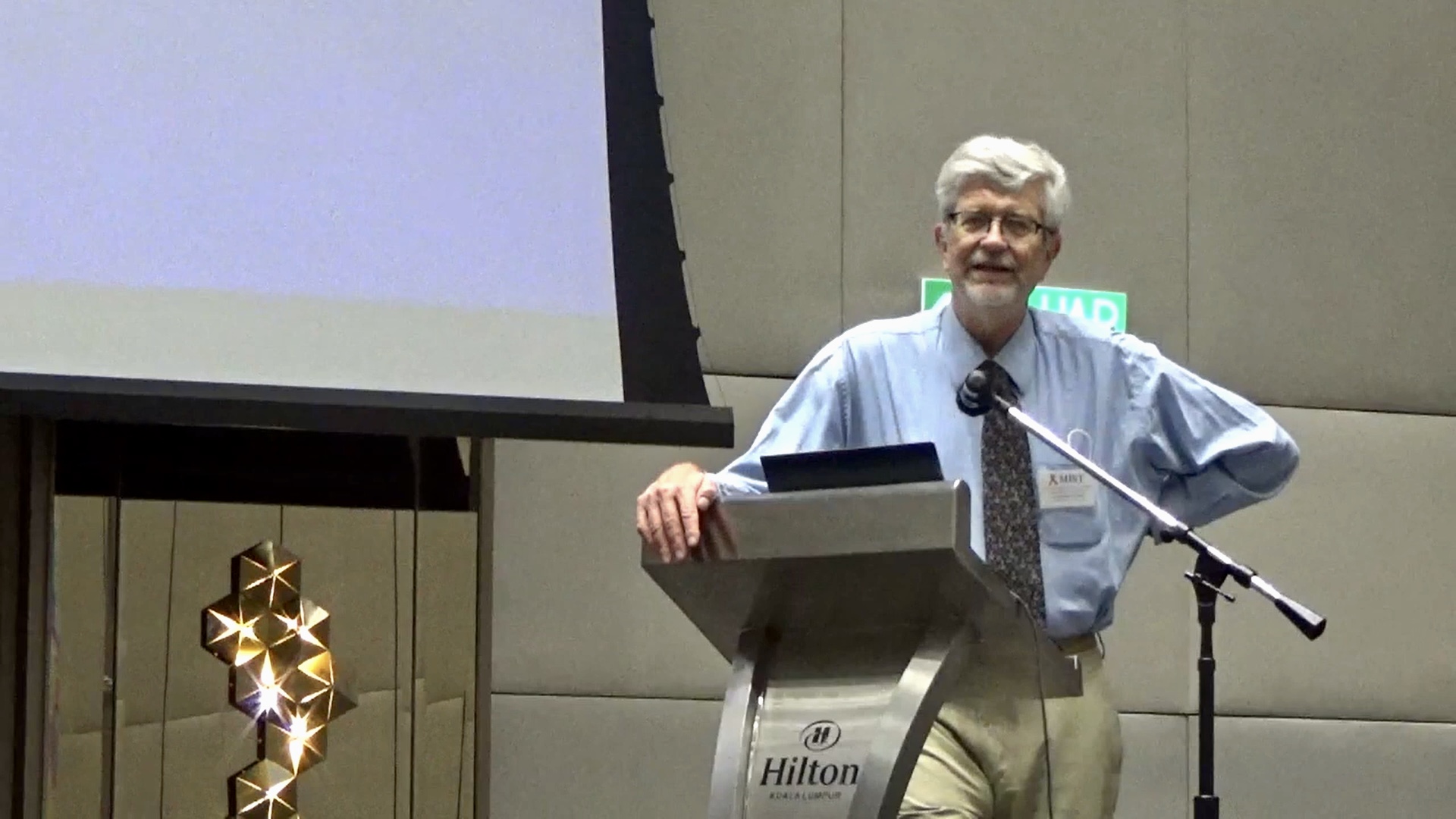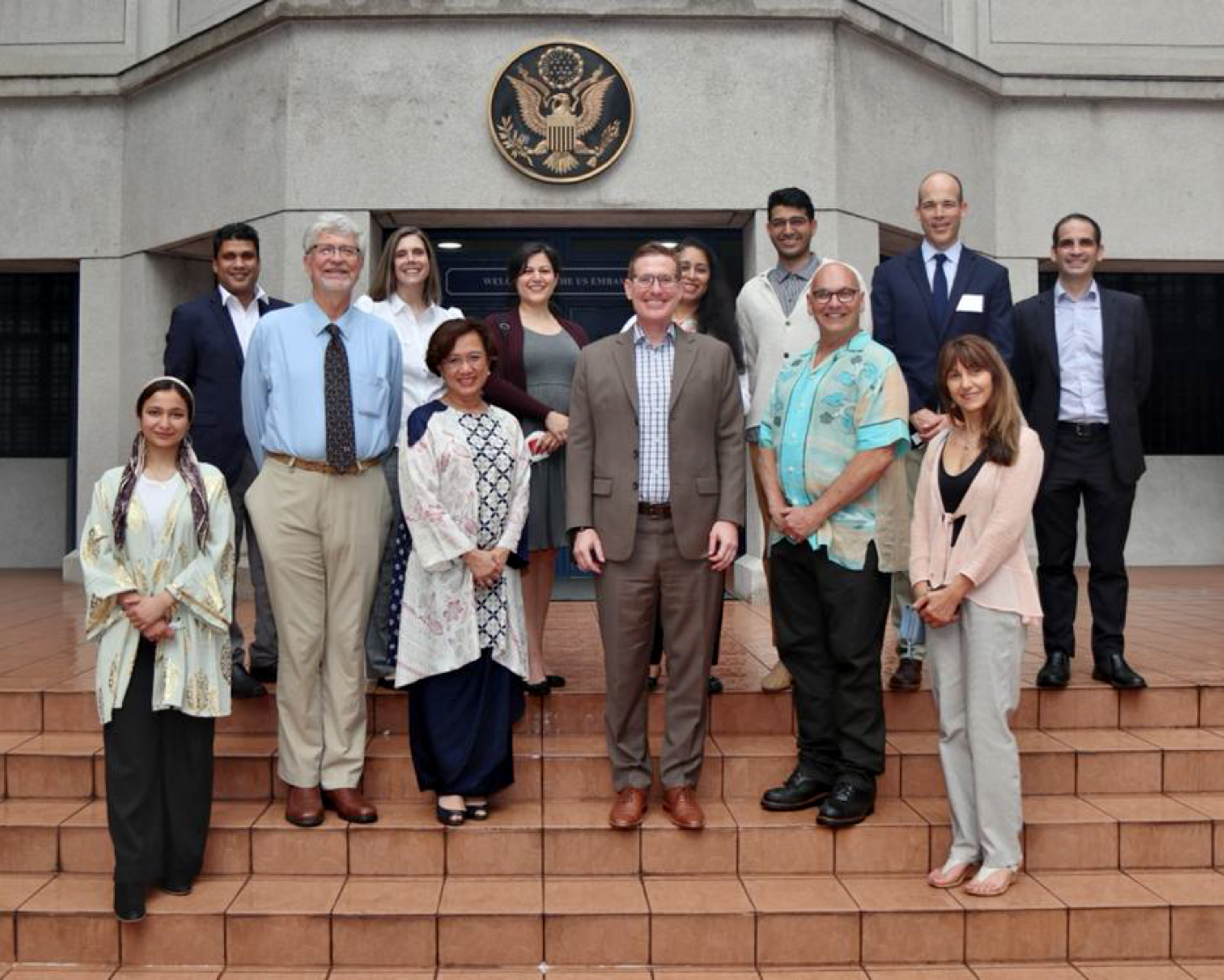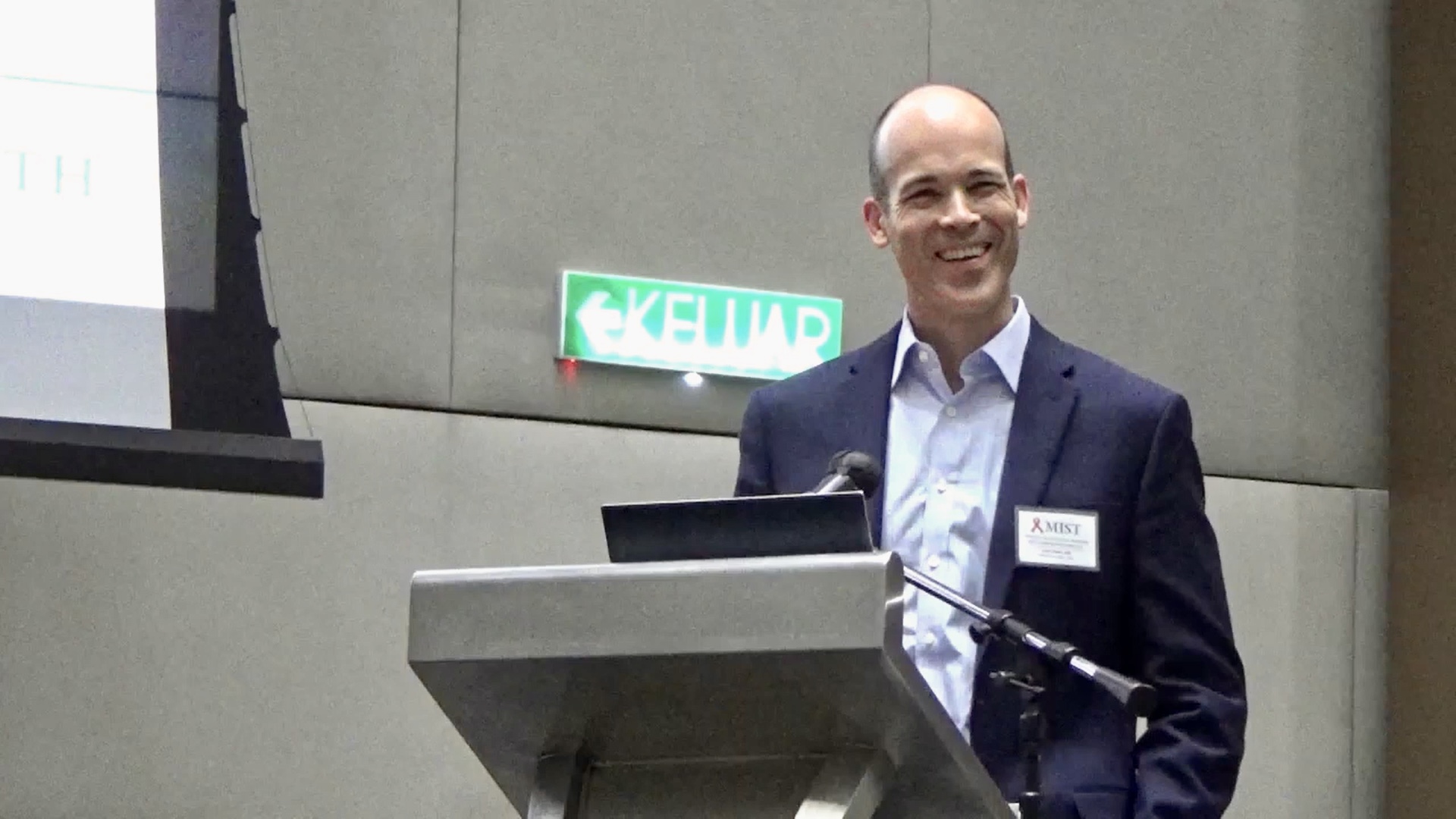Faculty members from the Yale School of Public Health (YSPH) and Yale School of Medicine (YSM) recently joined an interdisciplinary group of students and researchers in Kuala Lumpur for a summer boot camp on implementation science.
The three-day series of lectures, presentations, and working groups was the first in-person boot camp since Yale University and the Universiti Malaya established the Malaysian Implementation Science Training (MIST) center last year. The center, supported by a five-year grant from the Fogarty International Program at the National Institutes of Health and partly organized by Malaysia’s Centre of Excellence for Research in AIDS, aims to train the next generation of health scholars in translating scientific research into actionable plans for governments and communities across Southeast Asia.
“Over the last few decades, it’s been recognized that a lot of scientific evidence doesn’t make it into everyday practice because it’s not easy to actually do that. It’s not simple, it’s not a given,” said Luke Davis, MD, MS, associate professor of epidemiology (microbial diseases) at YSPH and associate professor of medicine (pulmonary, critical care, and sleep medicine) at YSM. “We need to not only implement health interventions, but we also need to help people change their practices and behaviors. and that’s what implementation science is all about.”
The boot camp, which counted more than 140 attendees this year, focused on using implementation science to improve health equity, especially regarding the prevention and treatment of HIV in Malaysia. Davis and other faculty members also led workshops on the theory of implementation science, new techniques, COVID-19 case studies, and more. The boot camp also primed attendees with foundational research techniques like grant writing and study designing.
Working on applying public health research is particularly important in Malaysia because of existing policy obstacles that can get in the way of providing harm-reduction programs for drug users or other groups, said Sten Vermund, MD, PhD, Yale’s Anna M.R. Lauder Professor of Public Health at YSPH, and professor of pediatrics at YSM, who also lectured at the boot camp.
That’s where implementation science comes in.
“There may be laws on the books where we have to get politically engaged and educate politicians as to how the legal policies they have established may be harming the ability to reach vulnerable populations and reduce their risk,” he said.

“We were able to have these parallel sessions where there were work groups, and there was commentary, and there was discussion,” said Frederick L. Altice, MD, MA, professor of medicine (infectious diseases) at YSM and of epidemiology (microbial diseases) at YSPH. “People sat down together and had lunch together, and I witnessed in front of my eyes people who were coming from other disciplines and trying to get some time to talk.”
Other Yale faculty members who traveled to Kuala Lumpur for the boot camp include Mona Sharifi, MD, MPH, associate professor of pediatrics (general pediatrics) and of biostatistics (health informatics), YSPH; Sheela Shenoi, MD, MPH, associate professor of medicine (infectious diseases), YSM; and Zhao Ni, PhD, RN, assistant professor, Yale School of Nursing and YSM. Kaveh Khoshnood, PhD, MPH, associate professor of epidemiology (microbial diseases), YSPH, and other faculty and lecturers joined the boot camp remotely from New Haven.
Attendees from last year’s boot camp — held remotely, with some Yale faculty members negotiating a 12-hour time difference to participate — had even become “independent experts in their own right” at the 2022 session, Altice said. “The local people began to recognize that there is local leadership that’s emerging, which is really what you want to happen.”
Indeed, two years into the five-year grant, the boot camp has attracted significant attention from the Malaysian Ministry of Health, said Adeeba Kamarulzaman, MBBS, FRACP, FASc, associate professor (adjunct) of medicine, YSM, former dean of the Faculty of Medicine, and professor of Medicine and Infectious Diseases at Universiti Malaya, who co-directs MIST. Malaysian officials recently asked MIST to create a series of shorter, one-day implementation science programs for broader use, and the recorded lectures from this year’s boot camp will help with other training in the future.
“To be able to influence how colleagues at the Ministry of Health implement evidence-based programs is very, very important,” Kamarulzaman said.
She added that the training on foundational science techniques at the June boot camp will help Malaysia grow its global research profile.
“It was this golden opportunity to have all these experts from Yale in Malaysia, — who are champions at getting big NIH grants — to impart that knowledge of some of the dos and don’ts on writing international grants in particular,” she explained. “It really was a golden opportunity that many young researchers wouldn’t otherwise have.”
Encouraged by positive feedback and tasty Malaysian food, Yale faculty members said plans are already underway for next year’s in-person boot camp — and beyond — in an effort to help Malaysia battle not only HIV but also a wide variety of other epidemiological issues.
“Right now, we’ve just been building the foundations,” Altice said. “And there’s incredible potential, I think, to go from there.”

